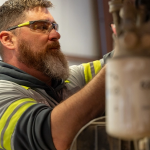Is solid communication enough to build a thriving team? While it’s a vital starting point, the deeper strength of any team lies in trust, safety, and shared growth. Real collaboration happens when people feel safe, are honest, take risks, and face tension together. Without that foundation, even the clearest conversations can fall flat. That’s why lasting team health depends not just on words but on how people connect, respond, and rebuild trust.
The Importance Of Trust And Conflict Navigation
Trust is the foundation, and it plays a central role in coaching, training, and retreats for healthy team culture. Without trust, even strong communication fails. Team members may hold back ideas or avoid difficult conversations. In contrast, trust encourages open exchange of feedback and a willingness to try new approaches.
Coaching programs reinforce trust by creating shared commitments. Sessions might include agreements around confidentiality, active listening, and accountability. Learning happens through exercises that invite vulnerability in a supportive environment.
Conflict isn’t the problem; mismanaged conflict is. When handled well, disagreements can drive clarity and innovation. Teams need structured tools to navigate it productively. The training introduces clear models like intention vs. impact. Role-plays help shift reactions from blame to curiosity, while reflection afterward reinforces the learning.
Guided Experiences That Strengthen Cohesion
Retreats play a key role in deepening connection of the team. Stepping away from daily routines allows for more focused engagement. These retreats often mix strategic planning with trust‑building activities. Whether through outdoor challenges or guided talks, they help build empathy and break down barriers. They also give space to reconnect with shared goals and set the tone for new team habits.
Structured coaching helps carry this momentum forward. Both individual and group sessions turn retreat insights into real change. Coaches support teams in staying accountable and tracking progress. Instead of vague promises, teams commit to clear actions like regular check‑ins or peer feedback loops.
Embedding Healthy Routines In Daily Operations
Workshops and retreats set the stage. Yet, long‑term impact happens in day‑to‑day moments. After training, healthy teams embed routines. Daily stand‑ups include a 60‑second check on team morale. Weekly reflections ask what is working and where tension remains. Ongoing peer coaching pairs members so that feedback becomes part of the rhythm. When new habits are anchored to calendars, they stick.
Leadership support matters, too. Managers model vulnerability by admitting missteps and inviting input. They also protect time for development. Leaders who commit to regular check‑ins reinforce culture. Guided programs help leaders act as role models. They learn how to ask honest questions and reinforce trust.
Align Teams Through Core Values
A focused session on uncovering underlying values can transform team identity. Facilitators guide participants through discussions that reveal what matters most. Values such as mutual respect, ownership, or curiosity become anchors for decisions. When the team refers back to shared values, behaviors align naturally. This helps skip unclear debates and reduces misinterpretations. Shared values are powerful in keeping culture alive across changes.
Healthy teams need more than communication training. They thrive on trust, structured conflict practice, and shared values. Programs that combine coaching, training, and retreats for healthy team culture spark transformation. They provide tools to navigate disagreements and reinforce safe environments. Embedding new routines ensures long‑term sustainability.
A strong team culture grows from intentional effort. When trust, values, and conflict tools are built into how teams work every day, connection deepens, and progress becomes more natural. Structured programs, whether through coaching, training, or retreats, help teams move beyond talk and into habits that last. Over time, this consistency creates more than results: it builds a workplace where people feel grounded, motivated, and ready to grow together.
read more : Choosing The Right Window Style For Calgary’s Unique Climate



